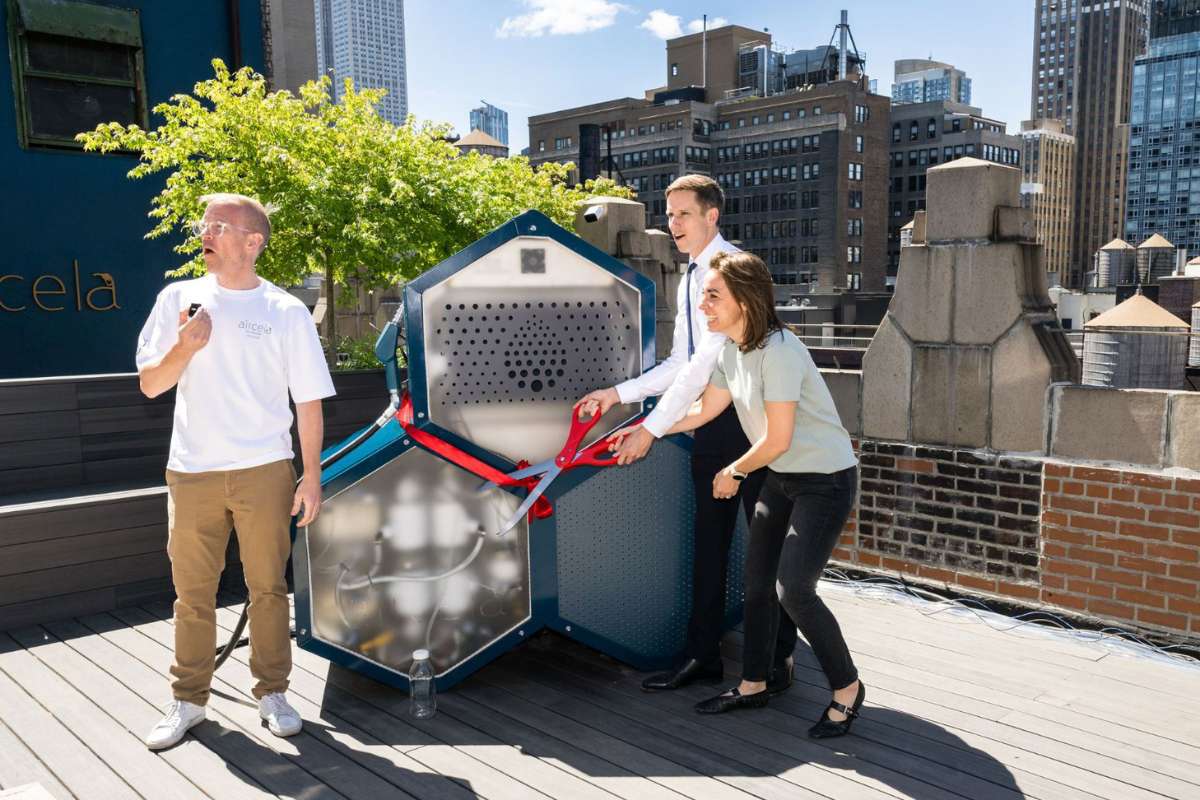In a striking development that could disrupt the fossil fuel industry, a New York-based startup named Aircela has unveiled a revolutionary machine that transforms carbon dioxide from the air into gasoline. At a time when global energy demand and environmental concerns are both peaking, this innovation has caught the attention of scientists, investors, and clean energy advocates alike.
Founded in 2019 by Mia and Eric Dahlgren, Aircela’s compact, fridge-sized device extracts CO2 from the atmosphere and converts it into clean-burning air into gasoline using renewable electricity. Unlike traditional synthetic fuel production, Aircela’s process is hyper-local, capturing emissions on-site and producing fuel that is immediately compatible with existing engines no retrofitting required. The result? Gasoline free of sulfur and heavy metals, aligning with current infrastructure while drastically lowering the carbon footprint associated with fuel use.
Backing from Industry Veterans and Global Investors
Initially greeted with skepticism, Aircela’s technology won over critics after live demonstrations showcased its practical viability. Karl Dums, a former Porsche executive, admitted his doubts before witnessing the machine in action. “I wish you all the success in the world, but I couldn’t believe it would work… Thankfully, I was wrong,” he said, now lending his support to the project.
Aircela is also backed by some of the most influential names in business and sustainability. Chris Larsen, co-founder of Ripple, and activist investor Jeff Ubben are among the financial supporters. In a major vote of confidence, Maersk Growth, the venture arm of shipping giant A.P. Moller-Maersk, has also invested in the company. Morten Bo Christiansen, senior VP at Maersk, pointed to Aircela’s air-capture approach as a technology with transformative potential for global logistics and transport industries.
The Road Ahead: From Concept to Commercial Launch
The science behind Aircela’s breakthrough is grounded in the work of physicist Klaus Lackner, a pioneer in carbon capture technology. His research laid the foundation for the system that powers the machine. A public demonstration held on May 22, 2025, atop a Manhattan rooftop, revealed the tech’s real-world viability and scalability.
Looking ahead, Aircela plans to roll out its first commercial units by fall 2025, targeting off-grid users and industrial clients who want to reduce dependence on fossil fuels without revamping existing infrastructure. The company envisions widespread deployment, making it possible for individuals and businesses to produce their own clean fuel on-site, creating a self-sustaining and circular energy economy.
As the world searches for meaningful responses to the climate crisis, Aircela’s breakthrough stands out as a beacon of hope. If widely adopted, this technology could redefine energy independence and sustainability, signaling a future where air into gasoline no longer needs to come from deep beneath the Earth, but directly from the air around us.
Explore More News In Our Oil Gas Energy Magazine












